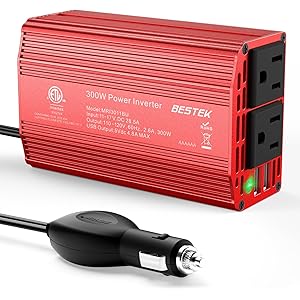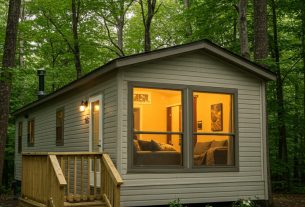When I first considered the idea of purchasing a trailer, I found myself overwhelmed by the options and financing possibilities available. Like many others, I wondered, “Can I get a mortgage loan for a trailer?” The answer is yes, but the path to securing that loan is often not straightforward. In this article, I’ll walk you through everything I learned about financing a trailer, including the different types of loans available, the pros and cons, and the essential steps to take to make your dream a reality.
Understanding Trailer Financing
Before diving into the specifics of mortgage loans for trailers, it’s crucial to understand what type of trailer you’re considering. The term “trailer” can encompass a wide range of vehicles, from mobile homes to travel trailers and fifth wheels. Each type has unique financing options and requirements.
Types of Trailers
- Manufactured Homes: These are built in a factory and transported to a site. They can be financed similarly to traditional homes.
- Mobile Homes: Mobile homes can be either permanent or temporary and may require different types of loans.
- Travel Trailers: These are typically used for vacations. Financing options may be more limited.
- Fifth Wheels: Similar to travel trailers but designed to be towed by a pickup truck.
Understanding the type of trailer you want to purchase is crucial, as it directly influences your financing options.
Types of Loans Available
Once I identified the type of trailer I was interested in, the next step was understanding the different financing options available. Here are the main types of loans I discovered:
1. Personal Loans
Personal loans can be an excellent option for financing a trailer, especially if it is not classified as real estate. Personal loans are unsecured, meaning they do not require collateral. However, they often come with higher interest rates compared to secured loans.
2. RV Loans
If you’re looking at a travel trailer or fifth wheel, an RV loan is specifically designed for recreational vehicles. These loans may offer longer repayment terms and lower interest rates than personal loans.
3. Conventional Mortgages
For manufactured or mobile homes that meet specific criteria, conventional mortgages can be an option. The home must be affixed to a permanent foundation and meet local building codes.
4. FHA Loans
The Federal Housing Administration (FHA) offers loans for manufactured homes, which may be a good option if you’re a first-time buyer or have a lower credit score. These loans often require a lower down payment than conventional mortgages.
5. Chattel Loans
Chattel loans are specifically for personal property, including mobile homes that are not permanently affixed to land. These loans can be easier to obtain for trailers but may have shorter terms and higher interest rates.
Factors to Consider When Financing a Trailer
As I researched my options, several critical factors emerged that I needed to consider before making a decision:
- Credit Score: Your credit score plays a significant role in determining your loan eligibility and interest rate.
- Down Payment: Some loans require a down payment, which can range from 3% to 20% of the purchase price.
- Loan Terms: The length of the loan can vary greatly, affecting your monthly payments and total interest paid.
- Insurance Costs: Don’t forget to factor in insurance costs, which can vary based on the type of trailer and your location.
- Land Ownership: If you intend to place your mobile home on a plot of land, owning that land can significantly affect your financing options.
Steps to Secure a Mortgage Loan for Your Trailer
Securing a mortgage loan for a trailer can be daunting, but I found a systematic approach made the process manageable. Here’s how to get started:
Step 1: Assess Your Financial Situation
Before applying for any loan, I took a close look at my finances. This included reviewing my credit score, outstanding debts, and overall budget. Understanding my financial health gave me a clearer picture of what I could afford.
Step 2: Research Loan Options
I spent time researching different loan types and lenders. I compared interest rates, terms, and fees to find the best option for my needs. Websites like Bankrate and NerdWallet were invaluable resources during this phase.
Step 3: Get Pre-Approved
Once I narrowed down my options, I applied for pre-approval with a few lenders. Pre-approval not only gave me a better idea of my budget but also showed sellers that I was a serious buyer.
Step 4: Find the Right Trailer
With my pre-approval in hand, I began my search for the perfect trailer. I visited dealerships, attended RV shows, and browsed online listings. I made sure to consider both new and used options to find the best fit for my needs.
Step 5: Complete the Loan Application
Once I found my dream trailer, I returned to my lender to complete the loan application. This involved providing documentation like income verification, credit history, and details about the trailer.
Step 6: Close the Loan
After the lender processed my application, I received a loan offer. I reviewed the terms carefully, ensuring I understood everything before signing. Once I accepted, we scheduled a closing date, and I was officially a trailer owner!
Common Challenges and How to Overcome Them
Throughout my journey, I encountered several challenges, which I learned to navigate:
1. Low Credit Score
If your credit score is lower than ideal, consider taking steps to improve it before applying for a loan. Paying down debts, making timely payments, and disputing inaccuracies on your credit report can help raise your score.
2. High Interest Rates
Shopping around for lenders can help you find more favorable interest rates. Additionally, consider making a larger down payment to reduce your loan amount and secure better terms.
3. Limited Financing Options
For unique or older trailers, financing can be challenging. In such cases, consider alternative lenders, credit unions, or even peer-to-peer lending platforms.
Case Studies: Real-Life Experiences
To further illustrate the financing process, I gathered a few case studies from individuals who successfully secured loans for their trailers:
Case Study 1: Sarah’s Journey to a Mobile Home
Sarah had been renting for years but wanted to own a mobile home. With a credit score of 650, she was initially worried about her options. After researching, she applied for an FHA loan and was able to secure financing with a 3.5% down payment. Today, she enjoys the stability of homeownership and a manageable mortgage.
Case Study 2: Mark’s Adventure with a Travel Trailer
Mark was eager to hit the road and explore the country in a travel trailer. He took out an RV loan with a local credit union, which offered him favorable terms due to his excellent credit score. Mark was thrilled with how easy the process was and now travels every chance he gets.
The Future of Trailer Financing
As the popularity of trailers continues to rise, so does the innovation in financing options. Lenders are recognizing the demand and are beginning to offer more flexible solutions. This shift could make it easier for future buyers like me to secure the financing they need.
Conclusion
In conclusion, obtaining a mortgage loan for a trailer is absolutely possible with the right knowledge and preparation. By understanding the types of loans available, considering the factors that influence financing, and following a systematic approach, you can turn your dream of owning a trailer into a reality. Whether you’re looking for a manufactured home or a travel trailer, there are options out there for you. I encourage you to start your research today and take the first step toward your new adventure!
Frequently Asked Questions
Can I finance a trailer without land?
Yes, you can finance a trailer without land, especially if you opt for a personal loan or a chattel loan. However, traditional mortgages typically require the property to be affixed to land.
What is the average interest rate for trailer loans?
The average interest rate for trailer loans can vary widely based on your credit score and the loan type. Generally, rates can range from 5% to 15%.
Do I need insurance for my trailer?
Yes, most lenders will require you to have insurance for your trailer, regardless of whether it’s classified as a vehicle or real estate.
If you found this article helpful, consider signing up for our newsletter for more insights and resources. Don’t forget to share this with your friends and on social media!
BESTEK Power Inverter DC 12V to AC 110V - 300W Car Plug Adapter Outlet with 4.8A Dual USB Fast Charging Port - Car Charger Cigarette Lighter Adapter for Phone, Laptop on Road Trip - Aluminum Housing
$23.74 (as of November 16, 2025 07:53 GMT -03:00 - More infoProduct prices and availability are accurate as of the date/time indicated and are subject to change. Any price and availability information displayed on [relevant Amazon Site(s), as applicable] at the time of purchase will apply to the purchase of this product.)
Sign up for our newsletter and stay up to date with exclusive news
that can transform your routine!





